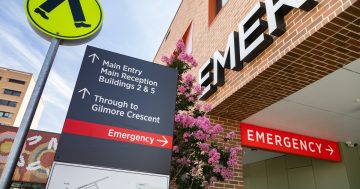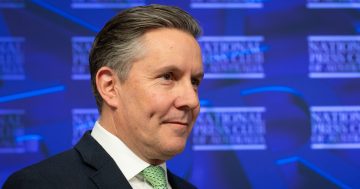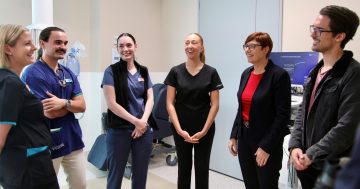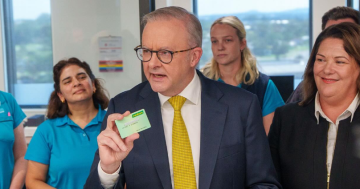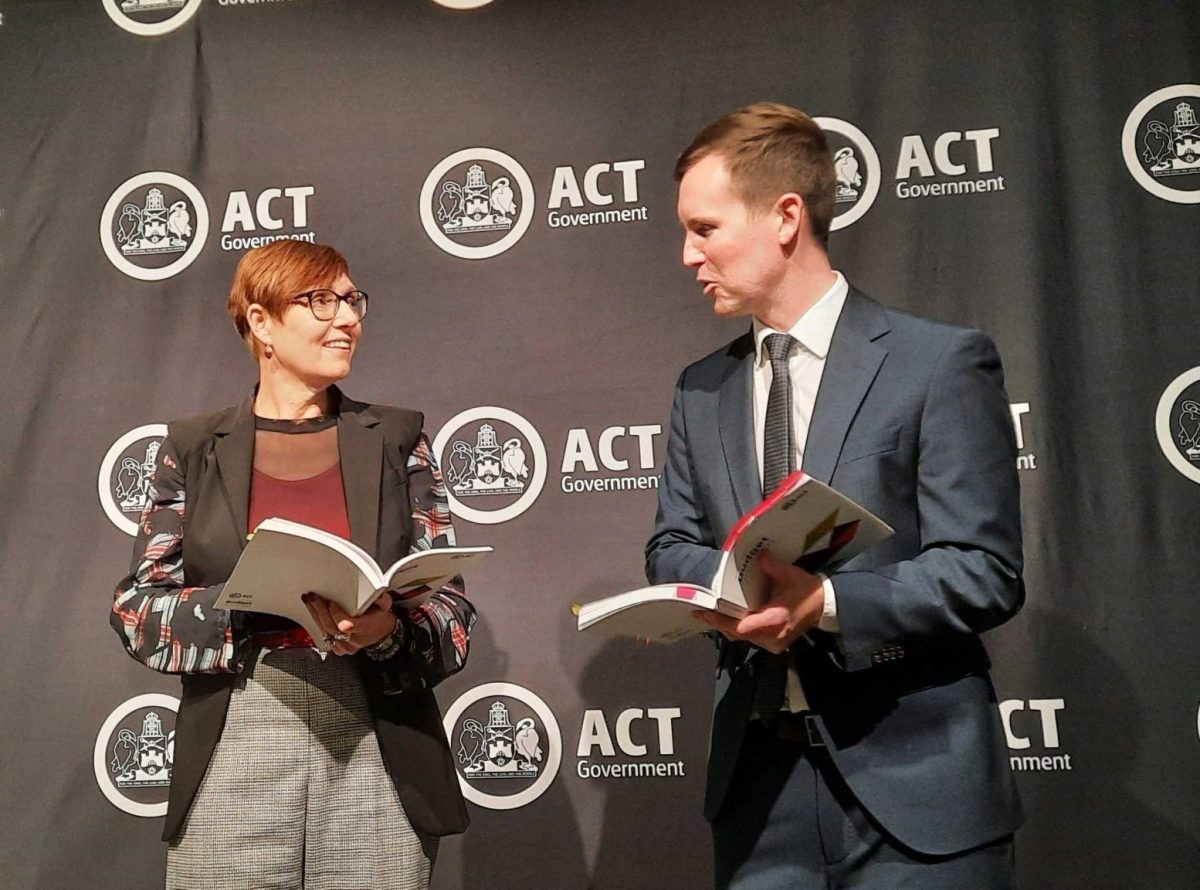
ACT Health Minister Rachel Stephen-Smith and Treasurer Chris Steel unveil a $250 health tax on Canberrans. Photo: Ian Bushnell.
Canberra ratepayers aren’t the only ones gobsmacked by the ACT Budget’s $250 annual health levy. The Federal Government is also at a loss to explain why a Labor government would resort to such measures.
Federal Health Minister Mark Butler would not endorse the ACT Government’s new tax when asked to comment on it. Instead he suggested it was up to voters to hold the local government to account over the tactic.
As the economic skills of Chief Minister Andrew Barr and Treasurer Chris Steel continue to be questioned, Tuesday’s budget (24 June) confirmed a $1.1 billion deficit and contained the health levy, among other price hikes.
The ACT Government said the tax was necessary because the Federal Government was not giving enough money for public hospitals.
Unless it is extended by future ACT budgets, the tax – which isn’t means tested and applies to all ratepayers and businesses – will expire in 2028-29.
ACT Health Minister Rachel Stephen-Smith was left to sell the tax to the public but conceded it would not be a popular measure.
“It is a tough budget,” she said during an ABC radio interview.
“We had to make some really challenging decisions.”
But when Mr Butler was asked to comment about his ACT Labor colleagues and their budget health levy, he sought to distance himself.
Labor had condemned the Coalition throughout the federal election campaign over threats to Medicare and universal healthcare.
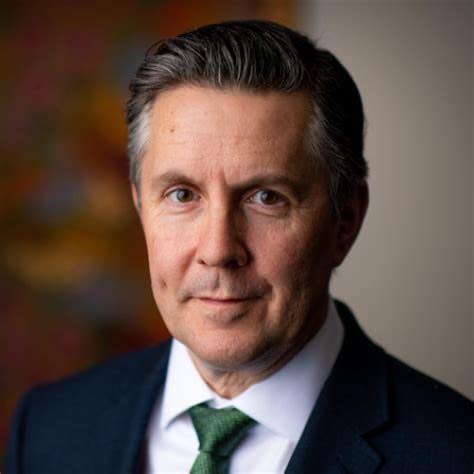
Federal Health Minister Mark Butler has distanced himself from the ACT Government’s health levy. Photo: Facebook.
“I’m aware of the decision taken by the ACT Government yesterday. At the end of the day, that government is accountable to the burghers of the ACT for decisions they take in their budget,” Mr Butler said on Wednesday.
“I did notice, though, some commentary around from the ACT Government about the question of the Commonwealth’s contribution to their public hospitals system as being a driver of that decision to impose a fee on every household or some households – I’m not quite sure which it is in the ACT.
“I will make the point that next week the Commonwealth will increase its funding to the ACT hospital system by 16 per cent.
“I’m not sure there’s ever been a bigger increase in Commonwealth funding to the ACT hospital system than the one that we will deliver next week, just next week.”
When asked if he would be more critical of the measure if the ACT Government was led by the Liberal Party, Mr Butler continued his defence of the Federal Government’s contribution to the ACT health system.
“I make this point; each government, state, territory and the Commonwealth will decide the way in which they raise funds,” Mr Butler said.
“We raise funds through the Medicare levy to help, not entirely, but to help fund our Medicare system, which is partly private sector and primary care, and partly the Medicare principles underpin the public hospital system.
“I’m not sure I agree there’s necessarily that direct connection between a revenue measure.”
Mr Butler said the ACT Government had taken to have ratepayers put money “which I imagine will just go into general revenue as the Medicare levy does”.
He said you could make the same argument about the Medicare levy.
“But I do want very forcefully to say the Commonwealth is putting its shoulder to the wheel when it comes to the ACT public hospital system…
“I make no commentary on the way in which the ACT Government raises the revenue they need to deliver all of their services.
“Some of them are health, some of them are policing, some of them are education. I imagine this money is going into general revenue, not hypothecated particularly to public hospital systems.”
Mr Butler said he understood state and territory governments – Liberal or Labor – were constantly asking for more money from the Commonwealth.
“Constantly arguing for more money to fund their public hospital system. Today is no different.”
Original Article published by Chris Johnson on Region Canberra.




